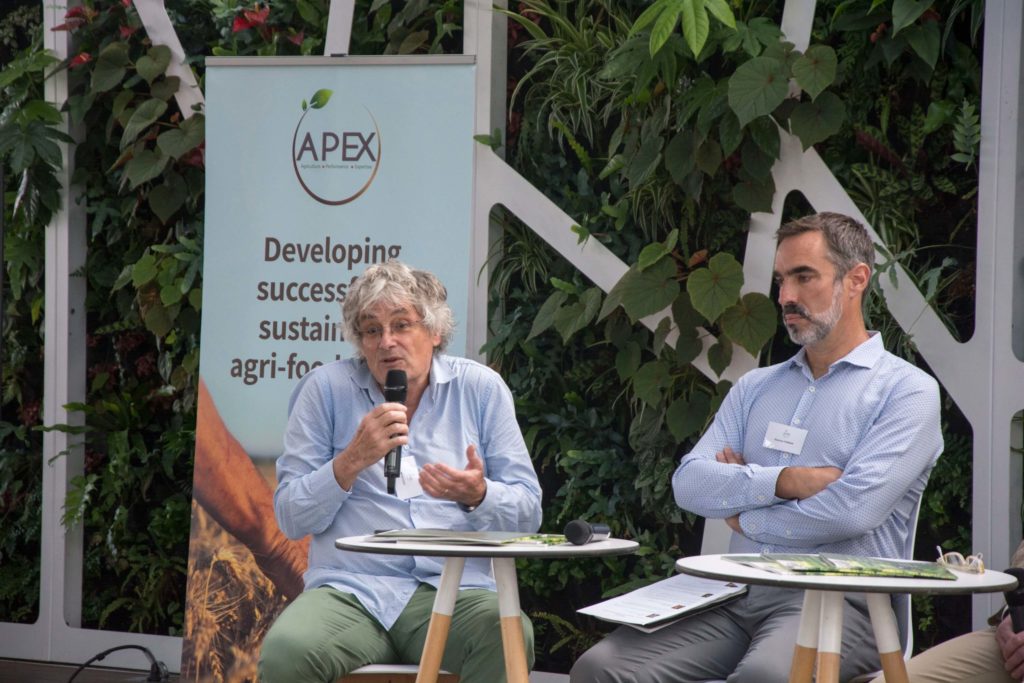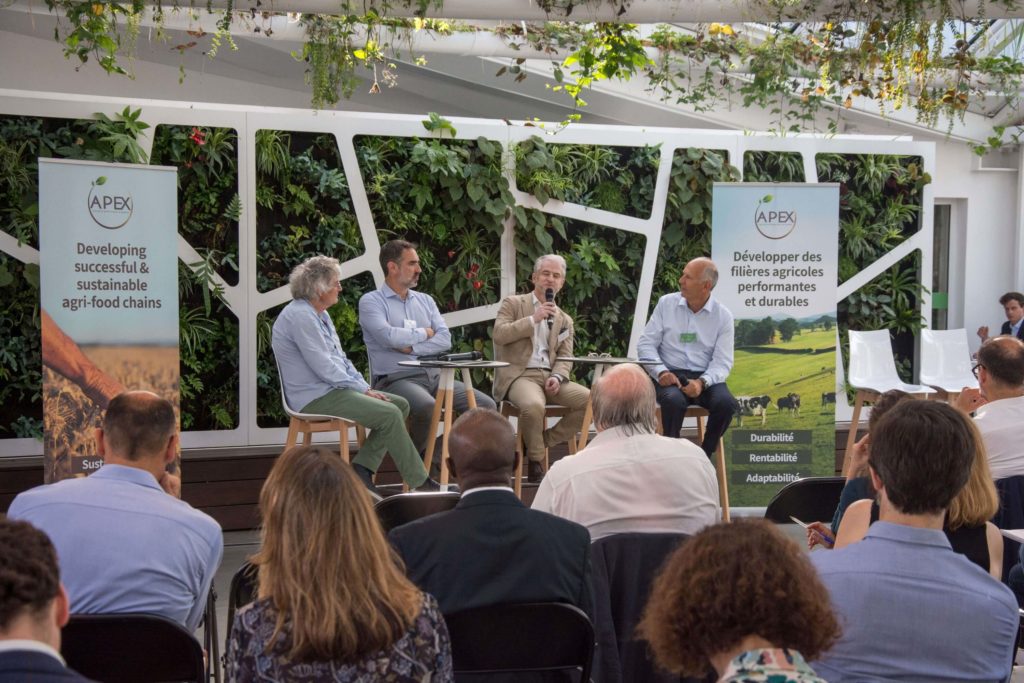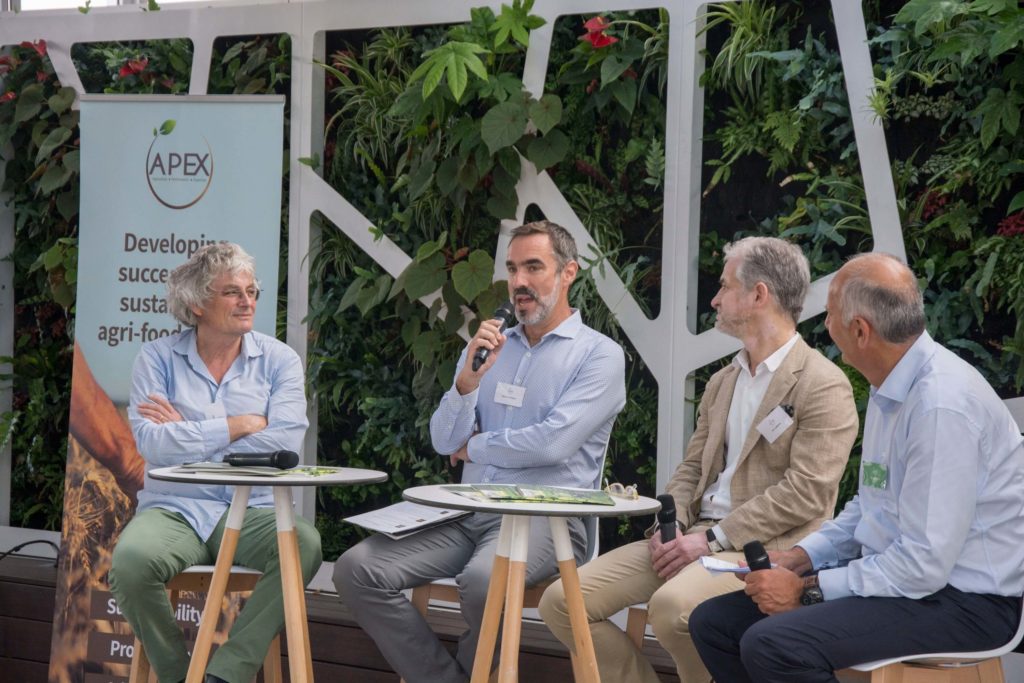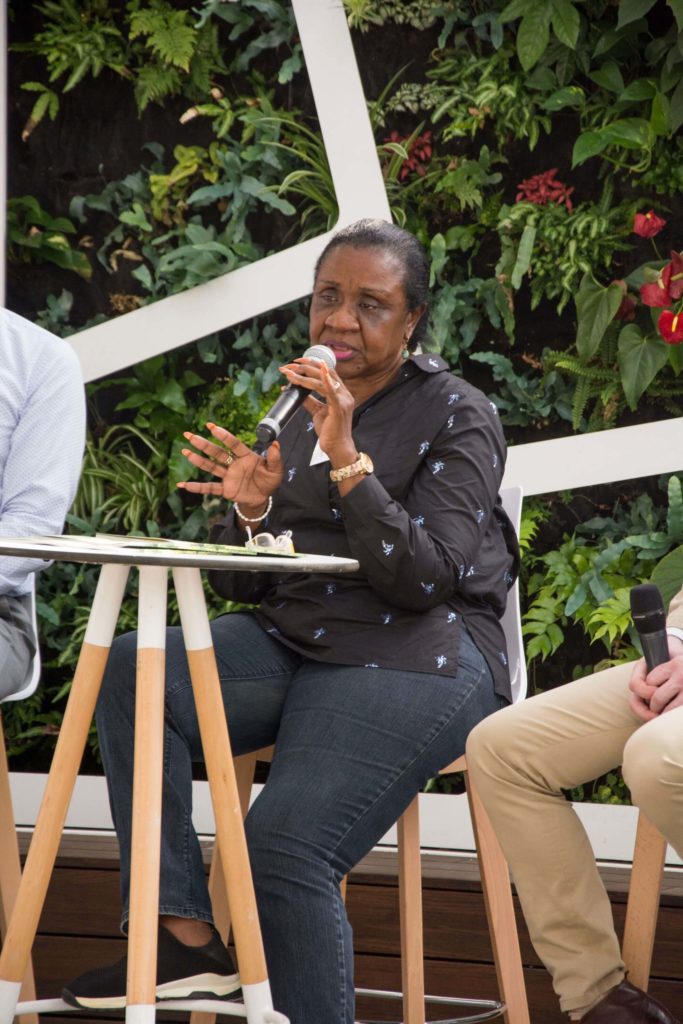Review of the round table on agri-food chains structuring, organized by Apexagri on May 19. Among the key learnings: we must take action now to develop successful agri-food chains in Africa and the Middle East, and there can be no performance without taking into account sustainability criteria.
Food sovereignty: the role of project leaders
Food sovereignty is a major issue, since we are 7 billion humans with 800 million of them being affected by hunger. In this time of war between Russia and Ukrain, two of the world’s main wheat exporters, the prices of agricultural commodities are soaring… We can question the distribution of resources.
Indeed, there is a lack of access to agricultural commodities in Africa and the Middle East. In order to respond to this, a greater proximity between the places of production and consumption appears to be a solution. And according to Michel EDDI, Chairman of IDDRI and former CIRAD CEO & Chairman, “it is difficult to see how we can avoid a return to public powers to find these modes of regulation at relevant territorial levels.” Indeed, governments have a key role to play: regulation, investments, risk coverage… But they do not always have the experience to structure efficient agri-food chains.

Michel EDDI discusses the issue of food sovereignty in African and Middle Eastern countries
Relying on the industry can therefore save time. The experience of specialized companies in structuring agri-food chains in various environments is invaluable. But here again, this does not solve all the problems, particularly that of structuring agricultural cooperatives. Without the support of the people who work in the sector, there can be no long-term success.
Eric CAMPOS, CSR Director of Crédit Agricole and Director of the Fondation Grameen, cites the example of La Laiterie du Berger in Senegal. This project needed a lot of observation and support for local populations to adopt the practices. It took 10 years before the cooperative was profitable. This requires a substantial budget to cover losses until the sector is running properly.

Eric CAMPOS takes the floor with Michel EDDI, Stéphane FORMAN and Marc DEBETS (from left to right)
Agri-food chains structuring: the imperative of sustainability
Stéphane FORMAN, Director of the Agriculture Unit of Afalula, the French agency for AlUla development, is working on a project supported by the Saudi government. With an unprecedented starting point: with an (almost) unlimited budget, can we develop sustainable agriculture in the region? AlUla is one of the most desolate region in the world. It receives less than 80mm of annual rainfall on average, which falls 5 days a year. However, it has been one of the world’s premier transitional and trading area in the past.
For the region, the strategy chosen was that of “selecting value chains that have a socio-economic meaning, but above all a meaning on the sustainability of resources“. The development of agri-food chains must indeed meet the challenges of sustainability. Whether it is a question of cultural heritage or respect for the environment and its resources. Indeed, there is no question of growing rice on site. Yet Saudi Arabia is one of the world’s largest consumers of rice. But this would make no sense historically, as rice has never been grown in the region. Nor would it make any environmental sense, since it requires a lot of water to grow.
It is with these sustainability criteria in mind that date palms, citrus fruits and small livestock were selected. With once again the imperative of relying on local populations, especially Bedouin populations settled on site, so that they appropriate the project. Populations that already have an agricultural culture, especially through small-scale livestock. Without it, there is a risk that the investments lead to another “white elephant”. That is to say, an ambitious project but without any real use by the locals. It is unthinkable to work on agri-food chains structuring without addressing the farmers themselves!

Stéphane FORMAN presents the chain development strategy implemented at AlUla
Value chain integration: the example of the poultry industry in Cameroon
We also had the honor to welcome Henriette NOUTCHOGOIN, entrepreneur and leader of the poultry sector in Cameroon with the NJS group. She gave us an inspiring testimony on the structuring of the Cameroonian poultry sector that her family has led over the last decades. The group started by producing animal feed, before deciding to import day-old chicks themselves. The goal was to supply farmers and encourage the consumption of their feed. Eventually, NJS began producing their own hatching eggs, raising parents locally. Today, NJS has about 20 breeding farms across Cameroon.
But five years ago, the group began experiencing supply difficulties. In particular in soybean cake and corn, which are necessary to feed the hens. This is a major problem for a group that holds 75% of the chicken market in Cameroon. It is therefore essential for the group to reduce their dependence on important foreign products.
It is therefore today a challenge of structuring the agricultural sector in Cameroon. A project initiated by the industrialist, without government support. A particularly enlightening testimony on the reality and difficulties of agri-food chains structuring in Africa. With an integration both upstream and downstream of the value chain in different stages. A strategy must allow to meet the needs of the local market. This integration is part of the challenges of sustainability, since it involves the relocation of agricultural production. It is one of the essential levers to be activated to meet the objectives of food sovereignty.

Henriette NOUTCHOGOIN’s enlightening testimony on the poultry industry in Cameroon
Key learnings:
We all agree that agri-food chains structuring takes time. It requires financial investments, technical development, and support to scale up. The relocalization of agricultural sectors makes it possible to reduce dependence on imports and to fight against poverty.
To do this, it is essential to select sectors that make sense from both a cultural and environmental point of view. The agricultural sector is the first to be affected by climate change, and it must be a major player in the fight against these disturbances, by developing responsible practices, such as regenerative agriculture. In other words: without sustainability, there can be no performance!
Finally, these agricultural projects can only be successful if the farmers themselves feel concerned and listened to. This is why Apexagri is always keen to involve farmers at every stage, as was done by involving herders’ representatives in the project to structure the livestock sector in Chad.